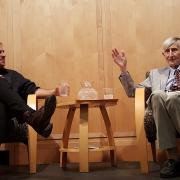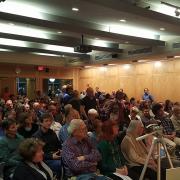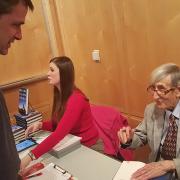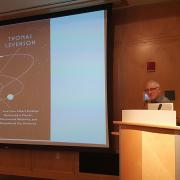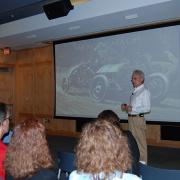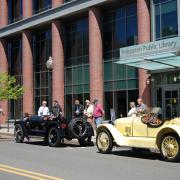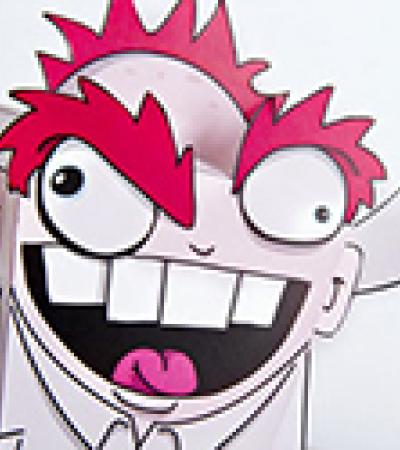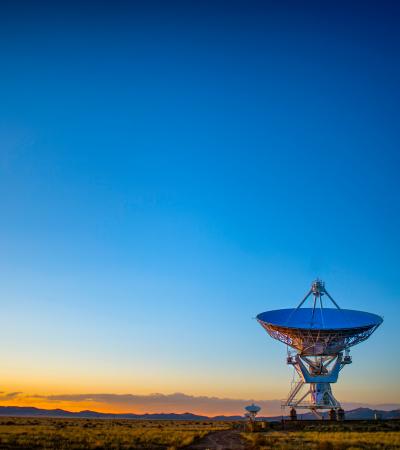Princeton Public Library’s History of Science series was an eight-week set of public programs designed to showcase a wide variety of related lectures, films, discussions and activities for our local community. We invited local scientists as well as regional authors to take part in leading discussions or giving lectures that explored the history of science through multiple viewpoints.
Advanced Planning
We started planning for this series of programs in late fall 2015 as it takes several months of lead time to assemble a series of themed events. The planning was led by Hannah Schmidl and Janie Hermann with assistance from other program team members as needed.
Our goal for this series was to look at history through a unique lens and to highlight the scientific achievements of our local community. Looking at the history of science allows us to gain perspective on current science and future progress. This series was a different spin on bringing STEM to an adult audience.
The first step was to identify possible speakers and to find a keynote event to anchor the series. In this case, it was physicist and mathematician Freeman Dyson. Next steps included finding films and books to tie in to the series. The unexpected challenge was narrowing down the possible events to build a coherent series.
Marketing
The programs were promoted through our library’s quarterly magazine, "Connections," as well as on our website, social media, local newspapers and print posters. (See the poster under Attachments at right.) The March-May cover of "Connections" magazine featured Freeman Dyson and had an in-depth article about the series. A separate program guide featured an events listing, reading and watching lists and an article by a Princeton University faculty member from the history of science program.
Our marketing and outreach was extremely successful; we had a standing room only audience for Freeman Dyson and full houses for the other scholars and discussions. Overall attendance for the series was approximately 500.
Budgeting
Our main costs included: public performance costs for the film screening, honoraria for the two book discussion leaders and travel expenses for one out-of-town author. The other authors and scholars appeared at no charge as community outreach.
If budget is minimal, scholars could do talks via Skype after film screenings, and library staff could lead book discussions instead of invited scholars. Our entire budget was approximately $700, but this entire series could be done for minimal or low cost.
Day-of-event Activity
This was a series of events over two months. Each event required set-up of the library’s community room or other spaces with chairs and A/V. Two staff members worked each of the larger events, and the smaller events, like the book discussions, required minimal staff time on that day. We followed this schedule:
- March 3, 2016, 7 p.m.: Screening of "Particle Fever," followed by discussion with Princeton University Physics Department’s Chris Tully
- March 8, 2016, 7 p.m.: Freeman Dyson in conversation with Nima Arkani-Hamed
- March 10, 2016, 7 p.m.: Author Talk with Thomas Levenson on The Brief Life and Exciting Times of Vulcan – the Planet that Wasn’t There
- March 18, 2016, 7 p.m.: Film Screening and Discussion of "Code Girl"
- March 20, 2016, 2 p.m.: Author talk and activities with Laurie Wallmark on “Ada Byron Lovelace and the Thinking Machine”
- March 23, 2016, 7 p.m.: Book Discussion: Thomas Kuhn’s “The Structure of Scientific Revolutions” with Angela Creager
- March 30, 2016, 7 p.m.: Author talk with Scott McVay on “Surprise Encounters with Artists and Scientists, Whales and Other Living Things"
- April 13, 2016, 7 p.m.: Book Discussion: Brenda Maddox’s “Rosalind Franklin: The Dark Lady of DNA” with Kathryn Maxson
- April 24, 2016, 2 p.m.: Lecture: Mercer Magic and the Story of America’s First Sports Car
Program Execution
Attendance varied from more than 250 for the keynote event to a dozen participants in the book discussions. We received excellent verbal feedback on the speakers and discussions. Attendees seemed to be interested in coming to multiple events thanks to the high quality of each one. We achieved the goal of highlighting how important it is to look at history from a variety of angles and of allowing the community to interact with scientists and scientific thought.
Staff evaluated the programs at the end of the series and felt that it was of interest to the community. We received feedback, both written and verbal, from those attending events as to how much they appreciated the series and the topics chosen. Our attendance at each event met or exceeded our expectations, and the books we identified for a tie-in to the series were checked out by our community.
Advice
Start planning four to six months in advance, especially if you plan to attract a larger name speaker or scholar. Their calendars fill up quickly, and you may need to get funding for travel.
Create book lists and film lists to help promote your collection. Work with your collection development librarian to ensure that you have the newest items. If space permits, set up a History of Science exhibition or book display for the duration of the series.
Have events in a variety of formats: lectures, discussions, film. That way, everyone can find an event of interest to them.
Find a local angle that will be of interest to your community. For instance, if you live in a rural area, you might want to reach out to an agricultural institution to have someone speak on the history of agriculture in the area. Or you might host a series of book discussions based around microhistories. Science is a broad area, so you should find out what connects to your community and research topics that will allow you to tap into local experts and specialists in that topic.

